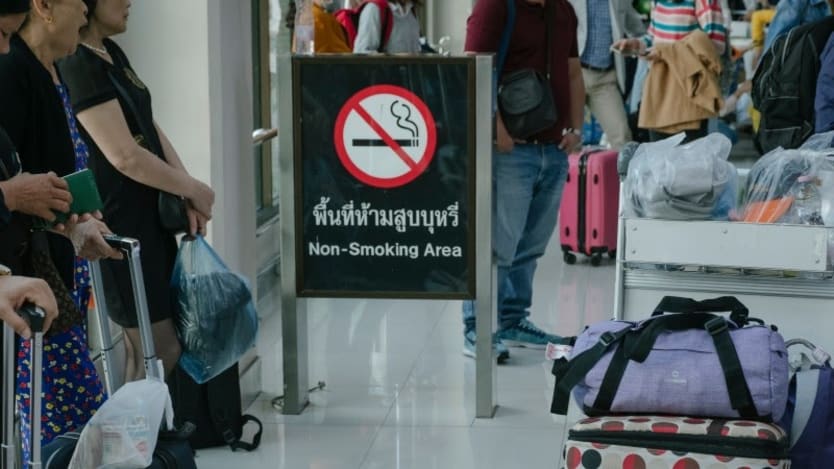
In an ideal world — more mindful of the value of life than of profit — tobacco would never have been a legal product. Tobacco kills more than 8 million people globally every year; around 1.2 million of those deaths are nonsmokers exposed to second-hand smoke, many of them children.
Today, the conjunction of two pandemics — the long-simmering tobacco pandemic and the COVID-19 pandemic — has created unprecedented challenges for public health and development. Tobacco is a common risk factor for the four main noncommunicable diseases — cardiovascular disease, cancer, chronic respiratory disease, and diabetes.
People with preexisting conditions, especially NCDs, as well as smokers, appear to be more vulnerable to serious illness and death from COVID-19.
The tobacco pandemic burdens national health care systems, and in 2012, the global economy lost $1.4 trillion in health care costs and lost productivity due to smoking-attributable diseases, equivalent to 1.8% of the world's annual gross domestic product.
If the means to end the tobacco epidemic is clearly spelled out in a widely embraced 15-year old public health treaty, it is fair to ask why we are still far from curbing the threat.
—Additionally, tobacco use fuels, deepens social inequities, increases poverty. It inhibits socioeconomic development at the household, national, and global levels, as well as infringing human rights and obstructing progress toward achieving the Sustainable Development Goals.
At WHA, civil society calls for tobacco control in COVID-19 response
Since February, a number of blog posts and articles have cast doubt on smokers' vulnerability to COVID-19. Anti-tobacco groups, which say many of these pieces have industry ties, are calling for stricter controls.
However, another consequence is too often ignored: the environmental impact of tobacco. According to a 2017 environmental impact report by the World Health Organization, “tobacco creates waste and inflicts damage on the environment across its entire life cycle, from cradle to grave — or perhaps more appropriately, to the many graves of its users.”
Tobacco growing and curing are both direct contributors to deforestation and desertification as forests are cleared for tobacco plantations and wood is burned to cure tobacco leaves. Cigarette butts are by far the largest single type of litter by number, according to the report.
The evidence is clear: Tobacco is a burden to development.
There is hope, however, since we know how to tackle the scourge of tobacco, and we have a powerful tool to do just that — the WHO Framework Convention on Tobacco Control. Since its adoption 15 years ago, the WHO FCTC has become one of the most widely embraced treaties in United Nations’ history, with 182 parties now on board.
As well as its health impact, the WHO FCTC has been recognized globally as an accelerator for sustainable development — potentially contributing to the achievement of well over 50 SDG targets, according to a 2017 assessment.
It has been included as a specific target: target 3.a, which stresses implementation of the WHO FCTC as a means to reach SDG 3.4. This calls for a reduction in premature mortality from NCDs by one-third by 2030 relative to 2015 levels, and for the promotion of mental health and well-being.
But the sole presence of the WHO FCTC on the development agenda is no guarantee of success. And while some may think that COVID-19 should be our only immediate priority, the facts argue that we also must prioritize tobacco control.
Addressing NCDs, their risk factors, and tobacco use in particular must be an integral part of the immediate COVID-19 response and recovery as well as of part of building-back-better strategies to achieve the 2030 Agenda for Sustainable Development.
While the WHO FCTC is intended to be implemented in its entirety to be most effective, there are two measures of special significance.
First, the measures to support those who want to quit tobacco use. There has never been a better time to quit smoking than during a global pandemic of a respiratory disease that makes people more aware of the risks.
Second, the fiscal measures — specifically increasing tobacco taxes — to discourage the use of tobacco, thus preventing the onset of new NCDs, and providing a greatly needed increase in government revenues.
The pace of implementation of the WHO FCTC should accelerate in order to effectively curb the tobacco pandemic and to achieve the health-related SDGs.
A good starting point is the “Global Strategy to Accelerate Tobacco Control: Advancing Sustainable Development through the Implementation of the WHO FCTC 2019–2025.” The strategy is intended to accelerate implementation of the most cost-effective measures of the treaty, including tax increases, smoke-free environments, graphic health warnings on tobacco packages, and a ban on tobacco advertising, promotion and sponsorship.
Additionally, it will promote multisectoral approaches and look to protect tobacco control policies from the commercial and other vested interests of the tobacco industry.
If the means to end the tobacco epidemic is clearly spelled out in a widely embraced 15-year old public health treaty, it is fair to ask why we are still far from curbing the threat.
The main obstacle reported by WHO FCTC parties is interference by the tobacco industry and those who work to further its interests. Also, according to the Global Center for Good Governance in Tobacco Control, the tobacco industry has taken advantage of the current global crisis to increase its so-called corporate social responsibility activities, offering help to countries in need.
Finally, let me call on our development partners, intergovernmental organizations, other U.N. agencies, and NGOs — especially those working in the non-health sectors — to recognize the full potential of the WHO FCTC to advance sustainable development, and to include the support for its implementation in their action plans.
The challenge before us is clear. The solution is available. Let us join forces to protect present and future generations from the devastating health, social, environmental, and economic consequences of tobacco consumption and exposure to tobacco smoke.








